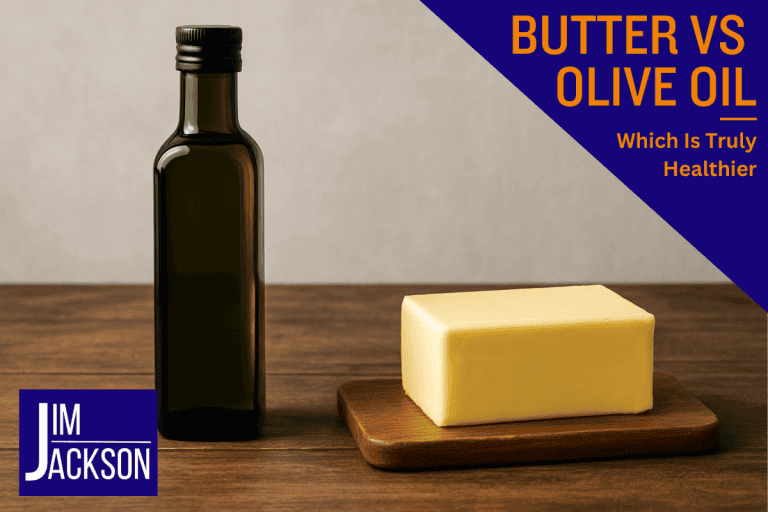9 Benefits Of Drinking Kefir Daily: Results That’ll Surprise You
Are you looking to learn about the benefits of drinking kefir?
Kefir is a creamy, tangy delight that is good on its own or with berries and a drizzle of raw honey. But it’s more than a tasty drink or snack.
This fermented milk drink is loaded with probiotics, vitamins, and minerals that can boost gut health, strengthen bones, and enhance the immune system.
But what does all that mean, and what are the health benefits of drinking kefir?
I consider drinking kefir part of the ultimate human diet, giving your body what it craves for base-level health. Alongside meat and organ meats, animal-based foods and drinks provide so much goodness that junk food and plant-based foods can’t.
Read on to discover all the ways kefir can improve your well-being.
TL;DR
- Kefir is a nutrient-rich fermented drink loaded with probiotics, vitamins, and minerals that support gut health and boost the immune system.
- Due to its high calcium and vitamin K2 content, regular kefir consumption can strengthen bones. It can also aid in lactose digestion for lactose-intolerant people.
- Kefir may help manage blood sugar levels, reduce stress and anxiety, and offer anti-inflammatory benefits, making it a versatile addition to various diets.
Nutritional Profile of Kefir

Kefir is like a nutritional powerhouse in a glass. This fermented milk drink boasts a rich profile, differentiating it from regular cow milk.
Thanks to fermentation, kefir typically contains higher B vitamins and vitamin K2 levels, making these nutrients more accessible to our bodies.
But that’s not all—kefir is also packed with beneficial compounds like biotin, folate, and various bio-active peptides that you won’t find in your average glass of milk.
One of the standout features of kefir is its impressive probiotic content. This fermented beverage kefir can contain as many as 28 different strains of bacteria and yeast, with probiotic counts potentially reaching billions per serving.
These probiotics are crucial in maintaining a healthy gut and boosting your immune system. Plus, the fermentation process significantly reduces the sugar content, making kefir much easier to digest, even for those who are lactose intolerant.
The exact nutritional composition of kefir can vary depending on the type of milk used and the specific bacterial strains present. To achieve optimal benefits, whole-fat, raw animal milk is recommended for fermentation.
Whether you choose raw milk kefir or pasteurized kefir, you’re in for a nutritious treat that offers more than just a delicious taste.
The Health Benefits of Drinking Kefir

So, let’s get into it and see why everyone’s raving about kefir right now.
1. Promotes Gut Health
If you want to boost your gut health, kefir is one of the best probiotic foods you can consume. Compared to yogurt, kefir is considered a more potent source of probiotics, containing approximately 12 active strains that can enhance your gut microbiota.
These probiotics help balance the gut microbiota, which is essential for a healthy digestive tract and overall well-being.
Kefir’s probiotics do more than just balance your gut bacteria; they also help alleviate many digestive issues.
Research indicates that kefir can be particularly beneficial for individuals with conditions like irritable bowel syndrome and chronic constipation, promoting regular bowel movements and reducing discomfort.
Kefiran, a unique carbohydrate in kefir, also has antibacterial properties that help inhibit harmful bacteria like E. coli and salmonella.
Moreover, kefir improves lactose digestion and is excellent for those with lactose intolerance. The fermentation process lowers the lactose content, making it easier to digest and less likely to cause digestive issues.
This makes kefir a fantastic addition to your diet if you want to improve your gut health and enjoy its numerous health benefits.
2. Supports Bone Health
Bone health is crucial, especially as we age, and kefir can significantly maintain strong bones. One cup of whole milk kefir provides around 305 mg of calcium, substantially contributing to your daily calcium needs.
Calcium is essential for maintaining bone density and strength, and kefir makes it easy to meet your requirements.
But calcium isn’t the only bone-friendly nutrient in kefir. This fermented milk drink is also a substantial source of vitamin K2, which is vital for effective calcium metabolism in the body.
Regular consumption of kefir has been shown to enhance the absorption of calcium in bone cells, potentially improving overall bone density and decreasing the risk of osteoporosis.
So, if you want to support bone health, adding kefir to your diet is a smart choice.
3. Boosts Immune System
A robust immune system is your body’s best defense against infections; kefir can help you achieve this. Bioactive compounds such as peptides and organic acids in kefir support immune system functions.
These compounds can enhance your body’s immune response, making it more efficient at fighting off germs and infections.
Regular consumption of kefir can also lower the risk of infections by maintaining a healthy gut environment. A healthy gut is closely linked to a strong immune system, and kefir’s probiotics play a crucial role in this.
Animal studies have shown that kefir can lower inflammatory symptoms and enhance immune response, further demonstrating its potential to boost your immune system.
4. Manages Blood Sugar Levels
Managing blood sugar levels is vital for overall health, particularly for individuals with Type 2 diabetes. Kefir has shown promise in this area, with studies indicating that it can help lower glucose levels.
Drinking 20 ounces of kefir daily has been found to keep glucose in check, making it a beneficial addition to a diabetic diet.
Kefir improves blood sugar control and reduces insulin resistance, which is critical for managing diabetes. Incorporating kefir into your diet may help regulate blood sugar levels more effectively and provide associated health benefits.
5. Aids in Lactose Digestion
Kefir can be a game-changer for those with lactose intolerance. The fermentation process lowers lactose content, making it easier to digest.
This is achieved through lactic acid bacteria that convert lactose into lactic acid, resulting in lower lactose levels than regular milk and is a type of fermented food.
People with lactose intolerance reported reduced gas and improved digestion after consuming kefir.
While milk kefir is low in lactose, options like water kefir and fruit juice kefir are available for those looking to avoid lactose entirely.
So, if you’re lactose intolerant, adding kefir to your diet can help you enjoy dairy without discomfort.
6. Potential Anti-Inflammatory Effects
Chronic inflammation can lead to various health issues, but kefir might offer some relief. This fermented drink can produce short-chain fatty acids (SCFAs) that help reduce inflammation and enhance immune regulation.
These SCFAs can lower the activity of proteins that activate immune responses and cause inflammation.
Kefir’s anti-inflammatory properties also extend to conditions like asthma and allergies. Additionally, it contains antioxidants that may help mitigate inflammation and free radical damage.
Though research primarily involves laboratory and animal studies, the potential anti-inflammatory effects of kefir are promising.
7. May Support Heart Health
Kefir is also excellent for heart health. Regular consumption has been linked to improvements in heart health, including managing blood pressure and cholesterol levels.
Kefir’s effect on the angiotensin-converting enzyme (ACE) helps relax blood vessels, potentially lowering blood pressure.
Kefiran, a unique substance in kefir, may prevent blood pressure increases in certain conditions.
Additionally, kefir could reduce the risk of cardiovascular disease by managing blood triglyceride and cholesterol levels.
Drinking kefir healthy can positively impact heart health by promoting better blood pressure and cholesterol management.
8. Eases Stress and Anxiety
In today’s fast-paced world, managing stress and anxiety is crucial for mental well-being. Kefir can help in this area as well. The absence of Lactobacillus can lead to increased sensitivity to stress, highlighting the importance of these probiotics in regulating stress responses.
Kefir contains substances that help create and regulate brain chemicals, contributing to mood stabilization. Studies have shown that kefir consumption reduces stress levels and enhances mood.
By incorporating kefir into your diet, you can benefit from its unique blend of probiotics and nutrients that support both physical and mental health, including the health benefits of kefir.
9. Suitable for Various Diets
One of the great things about kefir is its versatility, making it suitable for various diets. Kefir can be made from different types of milk, including full-fat and low-fat options, catering to those who prefer dairy-based kefir.
Kefir is an excellent alternative for vegans and those who avoid lactose, water, coconut, and fruit juice.
Even though water kefir does not provide the same protein content as milk-based kefir, it still offers numerous health benefits.
By offering both dairy and non-dairy kefir options, individuals can choose varieties that align with their dietary restrictions and preferences.
Whether you follow a vegan or lactose-free diet, you have a kefir option.
How to Incorporate Kefir into Your Diet

I love kefir on its own; I’ll simply glug it down straight out of the bottle. It’s too tangy for my wife, though. She prefers it with some raw honey to add a bit of sweetness.
My daughter and I have it with blueberries and raw honey as a dessert—it’s ridiculously moreish.
I’ve not tried it, but kefir can apparently replace buttermilk in recipes like pancakes and muffins, enhancing texture and flavor. If you try it, let me know how you get on.
If you’re a fan of smoothies, kefir would be a great base for a fruit smoothie—give it a try.
Are There Any Side Effects?
While kefir offers numerous health benefits, being aware of potential side effects is essential. New users might experience symptoms like bloating, nausea, and stomach cramps, particularly when first consuming probiotics like kefir. These symptoms typically subside with continued consumption.
To minimize digestive discomfort, gradually increase your kefir intake. However, individuals with weakened immune systems should be cautious, as kefir may introduce a risk of infections.
Due to insufficient safety data, pregnant or breastfeeding individuals are also advised to avoid kefir.
Where to Buy Kefir: Store-Bought vs. Farm-Fresh Options
When it comes to buying kefir, you have two main options: store-bought or farm-fresh raw milk kefir. Here’s what to consider for each:
Store-Bought Kefir
You can find kefir in most grocery stores, supermarkets, and health food shops. Look for it in the dairy or refrigerated probiotic section. Here’s what to keep in mind:
- Brands to Consider: Lifeway, Redwood Hill Farm, Raw Farm, or any organic, grass-fed options.
- Best Types: Choose plain, unsweetened kefir with live and active cultures. Avoid sugary, flavored versions, as they can counteract the health benefits.
- Convenience Factor: Store-bought kefir is ready to drink, making it a quick and easy way to boost gut health.
Direct-from-Farm Raw Milk Kefir
For the purists, raw milk kefir from a local farm is a nutrient powerhouse. Unprocessed kefir is richer in enzymes, beneficial bacteria, and vitamins. Find out more about the benefits of raw milk here.
- Where to Find It: Check farmers’ markets, local dairy farms, or raw milk co-ops. Use websites like RealMilk.com to locate farms near you.
- What to Ask: Ensure the farm follows hygienic milking practices and pasture-raises its cows or goats.
- Why It’s Worth It: Raw milk kefir is often creamier and more potent in probiotics. Many health-conscious individuals prefer it despite the higher cost and shorter shelf life.
Whether you choose the convenience of store-bought kefir or the nutritional richness of raw milk kefir, adding this fermented drink to your diet can transform your gut health.
Make sure to select high-quality sources for the best results.
Making Kefir at Home

Making kefir at home is cost-effective and allows you to control fermentation. Add kefir grains to fresh milk and let it ferment at room temperatures between 60°F and 90°F for about 24 hours. Cover the jar with a breathable material to allow carbon dioxide to escape during fermentation.
A glass jar is recommended to prevent metal exposure from damaging the kefir grains. If the grains are kept healthy by regular usage, they can be reused indefinitely. If they slow down, they can be reactivated by returning them to whole milk.
With these simple steps, you can enjoy the fresh, homemade kefir that’s packed with health benefits.
Conclusion
Kefir is a versatile and nutritious fermented milk drink with numerous health benefits. From promoting gut health and supporting bone health to boosting the immune system and managing blood sugar levels, kefir is a powerhouse of nutrients and probiotics.
Incorporating kefir into your diet can provide these health benefits and more. Whether you buy it from health food stores or make it at home, this probiotic drink is a valuable addition to any diet.
So, why not try kefir and experience its remarkable benefits for yourself?
I consider kefir part of a nose-to-tail diet. If you’re interested in learning more about consuming more of the animal than just muscle meat, check out my posts on organ meats such as liver, kidney, spleen, and even brains.
And that’s it… have a nutritious day!
Frequently Asked Questions
What is kefir?
Kefir is a delicious fermented milk drink packed with probiotics and nutrients, which is great for gut health. Give it a try for a tasty boost!
Can kefir help with lactose intolerance?
Absolutely! Since kefir undergoes fermentation, it has lower lactose levels, making it much easier for those with lactose intolerance to digest.
How does kefir support bone health?
Kefir supports bone health by being packed with calcium and vitamin K2, both of which are crucial for keeping your bones strong and dense. So, adding kefir to your diet could be a smart move for your bone health!
Are there any side effects of drinking kefir?
Yes, some people may experience bloating, nausea, or stomach cramps when they first start drinking kefir, but these side effects usually go away as your body gets used to it.
Can kefir be made at home?
Absolutely! You can easily make kefir at home by mixing kefir grains with fresh milk and letting it ferment at room temperature.







